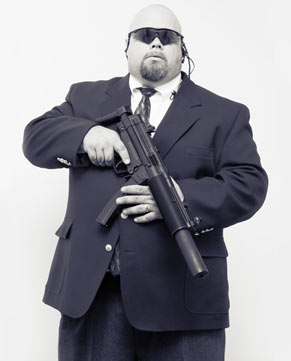Close Protection Training
Close Protection Training – Some Uncovered Tips
The purpose of writing this article is to provide assistance to all the aspiring close protection bodyguard trainees as well as to the highly qualified close protection officials regarding various security issues in the sector which are not generally disclosed during the close protection training courses.
Following are the five tips on some of the issue related to close protection training to help understand the security industry better:
- Limitations of Close Protection Agencies: One of the best kept security tips is about the limitations of the close protection executive agencies. It is not an unusual situation when you come across most of the close protection agencies informing their students about how their close protection training is world recognized and how their trained officials are now part of the global elite forces of the security sector. The best way to counter such close protection training is to clear out a few doubts before you actually invest in it, such as – whether their agency is accredited by any security association, whether they have their own operational jobs division, what are the qualifications of their instructors and so on and so forth.
- Knowing your enemies: Most of the close protection bodyguards come out of their closed protection training focusing only on the one evident enemy. The main enemy is, typically, a terrorist, a crime organization or some other perpetrator. There are hardly any close protection training agencies which teach you to defend the attacks from four others, which are:
- The bodyguard him/herself;
- The spouse or other family members;
- The local system of the Government where you are operating your security contract;
- Your client.
- Knowing the level of your security unit members’ protection courses: Most of the times, various agencies offering close protection training fail to check the qualifications of their trainees as a result of which serious problems are caused to the other more qualified and professional protection bodyguards, even to the extent of compromising on their safety. It is, thus always advisable to know the level of the fellow team members’ executive protection courses so as to prepare for the operations accordingly.
- Knowing your Client(s): It is not a hidden fact that most of the security clients fail to disclose the full picture of facts to you at the time of hiring. And it is also the case that most of the times; these clients have already witnessed a threat on themselves or their family. Thus, it is very important for you to complete your client profile and threat assessment stage with clear precision as this is the best time for you to gather as much facts about your client as possible.
- When to say ‘No’ to close protection security jobs: One aspect which closed protection training will not teach you is how to say ‘no’ to every security job that lands up on your desk. In the initial zeal of recovering the training costs and of proving your abilities as a bodyguard, one often tends to accept almost every security protection offer that comes their way. In order to avoid putting your career in danger, you must learn how to refuse a close protection security job which doesn’t seem to suit your profile well.

